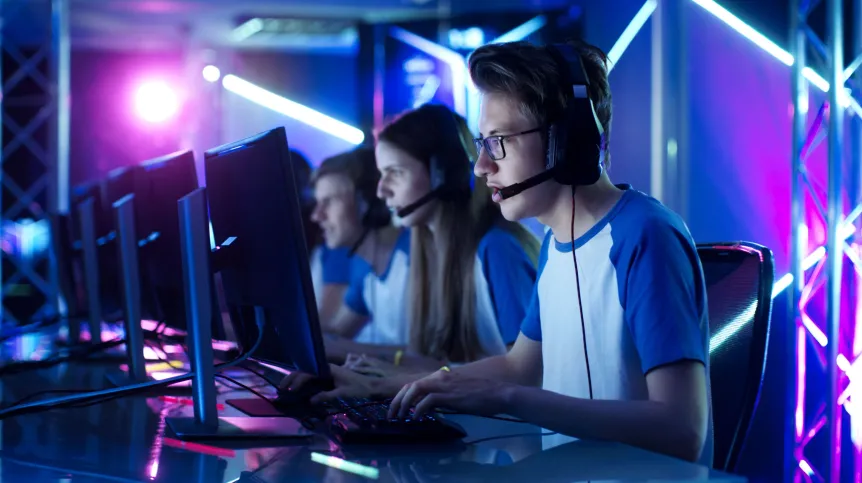
Players do not experience negative emotions such as stress before e-sports tournaments, the authors of the world's largest study of gamers have found. The experiments were conducted by scientists from the Adam Mickiewicz University in Poznań, and Dutch and American psychologists.
The team led by Dr. Maciej Behnke from the Faculty of Psychology and Cognitive Science has investigated how affect regulation (i.e. managing emotional reactions and stress) affects the effectiveness of players in e-sports tournaments. The results were published in the journal Royal Society of Open Science.
'The situation faced by players creates a brilliantly controllable opportunity to test a range of issues related to psychophysiology. During the research, it is possible to record not only performance (e.g. the effectiveness of shots) but also facial expressions, physiological response and the movements performed by the players', says a university press release.
Quoting Dr. Behnke, the release adds emotional reactions in stressful situations can either undermine or enhance players' effectiveness.
'In our study, we adopted synergistic mindsets intervention (SMI) developed by American researchers (...). The intervention teaches individuals how to change the way they think about physiological responses and emotions and their perspective on situations. It is intended to help you perform more effectively and thus feel more comfortable', says Dr. Behnke.
The researchers aimed to investigate whether the intervention could help players manage their stress responses better and improve their performance in the popular game Counter-Strike: Global Offensive (CS: GO).
The research team also included scientists from Eindhoven University of Technology, Stanford University and the University of Rochester. It was the biggest experimental study of gamers in the world conducted to date.
'We enrolled 300 players, randomly assigning them to either the SMI group or the control group. After two weeks of daily gaming, the participants competed in a tournament with 11,000 PLN prize fund. We measured their affective experiences and physiological reactions before and during the games to assess the impact of the intervention', says Dr Behnke.
The results surprised the scientists. Contrary to their predictions, players did not experience negative emotions such as stress before CS:GO matches. As a result, participants in the SMI group did not feel better before the matches, nor did they perform better during the tournament compared to the control group. This unexpected result indicated a lower potential of SMI in regulating affective responses and optimising player performance.
'One of the amazing things we experienced during our research was the response from the CS:GO community. Within two days of announcing the recruitment for research, we had over 600 applications. Moreover, players who expressed their willingness to participate showed full commitment throughout the entire research period, i.e. two weeks. We also had a minimal number of dropouts’, says Behnke.
According to the researchers, the results open new opportunities for future studies into affect regulation and optimising performance effectiveness in various contexts. Video recordings and physiological records of players will soon be made available to the general public so that they can analyse data from this project.
'This study represents a significant step in understanding how affect regulation can influence performance in high-stakes situations. Although the results were not consistent with our expectations, they provide valuable hints for the future, for further research on the effectiveness of e-sports players', Dr. Behnke says.
The project was co-financed by the Polish National Science Centre.
E-sport is a competition in which players play computer games recreationally and in tournaments. According to data from Statista.com, in 2024 the global e-sports market will reach revenues of USD 4.3 billion, and the number of enthusiasts of this form of entertainment will exceed 577 million.
PAP - Science in Poland
abu/ zan/ kap/
tr. RL













